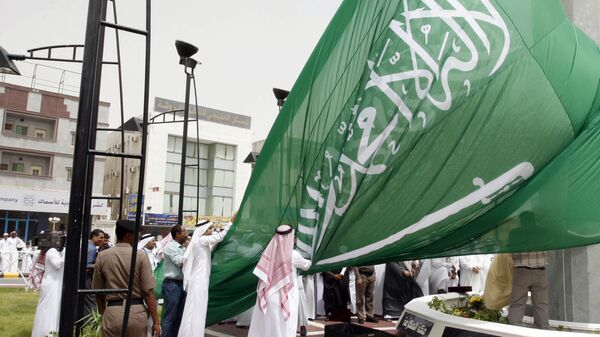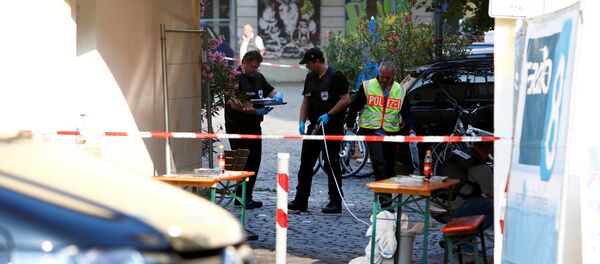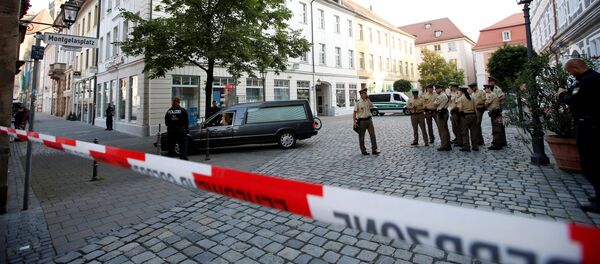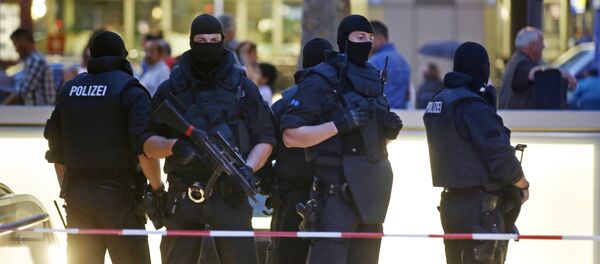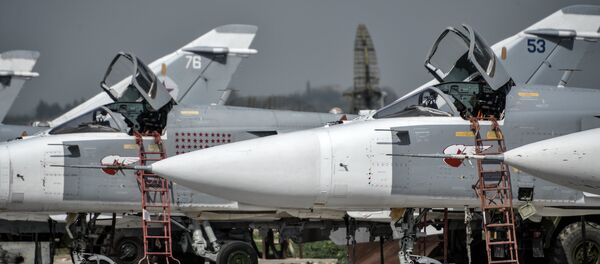Der Spiegel learned that transcripts of chats obtained by German security services had determined that the two terrorists had been in regular contact with suspected Daesh members whose phone numbers were registered inside Saudi Arabia.
Wurzburg attacker Riaz Khan Ahmadzai, who severely injured several people in a train in an axe and knife attack on July 18, had even left a goodbye message to his terror contact, writing "We'll see each other in paradise." Prior to that attack, Ahmadzai's contact had suggested that the 17-year-old drive a car into a large group of people, with the would-be terrorist responding that he didn't have a drivers license
On Saturday, Saudi authorities responded to Spiegel's revelations, offering German investigators help in finding those behind the attacks. According to Spiegel, a senior member of the Saudi government offered assistance, with authorities in Riyadh now in contact with their German counterparts.
This, the magazine added, was highly unusual, since Riyadh usually keeps a "very low profile" when suspicions of its support for Islamist terrorism arise. In any case, Spiegel noted that Saudi cooperation may very well help to establish the identity of the Daesh-connected persons who contacted the terrorists and encouraged them to carry out their vicious attacks.
However, not everyone is convinced of Riyadh's sincerity. On Saturday, German television news network Tagesschau issued a commentary on the reports that the killers in Wurzburg and Ansbach had connections with Saudi-based officials.
Tagesschau commentator Bjorn Blaschke was blunt, recalling that "time and again, the Kingdom of Saudi Arabia – both its rulers and its subjects, have been suspected of cooperating with Islamist terrorists." The journalist suggested that it's enough to recall the 9/11 investigation, and that 15 of the 19 terrorists were Saudi nationals.
Naturally, the US news network was forced to add the caveat that "while the alleged association with Bandar…does not provide direct evidence the prince was complicit in the 9/11 attacks, it raises new questions about Saudi Arabia's involvement."
Blaschke, for his part, suggested that even if the Saudi royal family was not directly connected with jihadists from al-Qaeda or Daesh, with the latter even carrying out attacks inside the Kingdom, it's important to point out that Saudi Arabia has more adherents to the terrorists and their poisonous ideology than most countries.
What's more it is "obvious is that the royal family is closely linked with the most reactionary form of Wahhabism, a school of Sunni Islam," the journalist noted. In fact, he added, "the position taken by devout Wahhabists hardly differs from that of terror organizations such as Al-Qaeda or Daesh."

